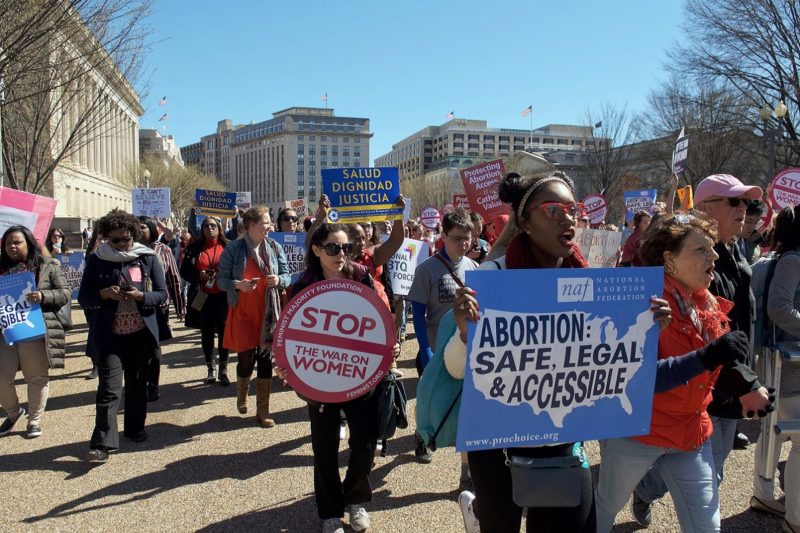2017 Saw a Surge of Pro-Choice Bills in State Legislatures
“We know there’s a growing momentum to engage around a more affirmative agenda."

State lawmakers’ efforts in 2017 to repeal or reform archaic and unconstitutional laws restricting access to abortion care were among several achievements by state-level policymakers to “advance reproductive health, rights, and justice policies,” according to a new report by the National Institute for Reproductive Health (NIRH).
Andrea Miller, president of NIRH, told Rewire that NIRH’s fourth annual report is intended to “lift up and recognize” the efforts of elected officials, advocates and health care providers that have pushed back against legislative efforts to restrict or outright eliminate access to abortion.
State lawmakers and advocates saw successes in the repeal or reform laws that criminalize abortion care. There were 645 bills introduced in 2017 that sought to protect access to reproductive health care, and 86 of these bills were passed into law, according to the report. That represents a marked uptick in pro-choice measures considered in state legislatures, as 191 pro-choice bills were introduced in 2016.
“Although generally unenforced, some of these clearly unconstitutional laws remain on the books, causing providers uncertainty about what is legally permissible and sometimes limiting the type of care they can offer to their patients,” the report states.
There are 18 states that have laws that could be theoretically enforced if Roe v. Wade were to be overturned, including ten states that have retained their unenforced, pre-Roe abortion bans, according to the Guttmacher Institute.
Miller said some of the pre-Roe abortion bans date back to the 1800s while others were modified in the 1960s and 1970s. Some of these laws have “criminal components to them that are problematic” for pregnant people and health-care providers.
Delaware Gov. John Carney (D) in 2017 signed into law a bill that repealed the state’s pre-Roe unconstitutional and unenforceable abortion ban.
Lawmakers in New York and New Mexico advanced legislation that would “bring the states in line with constitutional standards and decriminalize abortion,” according to the report.
New York’s AB 1748, which would repeal the state’s unenforceable abortion ban and codify the protections of Roe, was passed by the state assembly and is currently pending in the state senate. New Mexico’s HB 473, which would repeal the state’s unenforceable abortion ban, was favorably passed by committee, but lawmakers failed to bring it up for a floor vote in the house. This year, lawmakers in New Mexico have reintroduced an identical bill.
So-called trigger laws, which would automatically criminalize abortion if Roe were to be overturned, have been passed by states including Louisiana, Mississippi, North Dakota, and South Dakota.
Illinois Gov. Bruce Rauner (R) signed into law a bill that expanded insurance coverage of abortion care for people with low incomes and repealed the state’s trigger law that would outlaw the medical procedure if conservatives on the U.S. Supreme Court overturned the Roe precedent.
Miller said it’s important to build on the progress made during the past year in expanding and protecting reproductive rights even as GOP-held legislatures find new ways to erect barriers to the procedure.
“We know there’s a growing momentum to engage around a more affirmative agenda,” Miller said. “We want to make sure that we’ve laid out the kind of road map that people might need to be able to say, ‘Here’s what we could do, this is something another state did, let’s look at how we could tailor that to our circumstances and try to make progress in our state.’”
